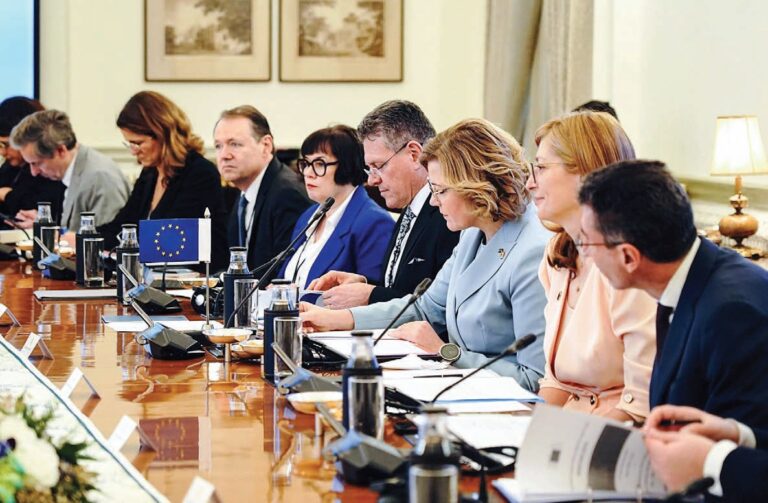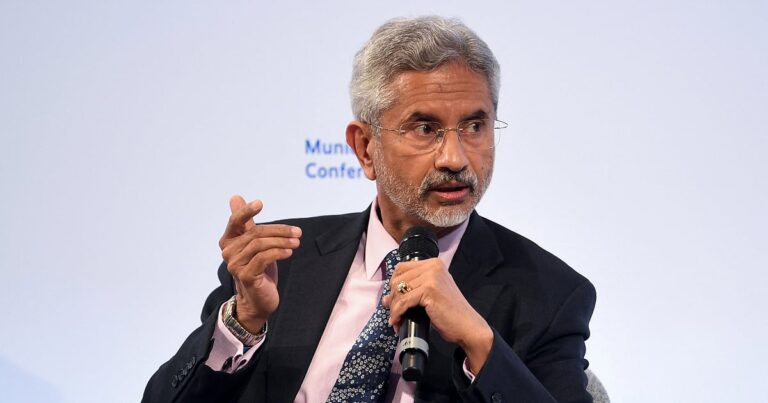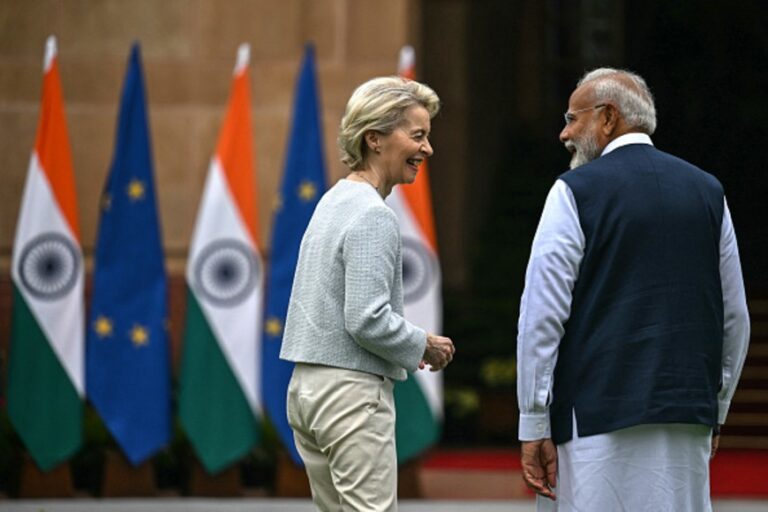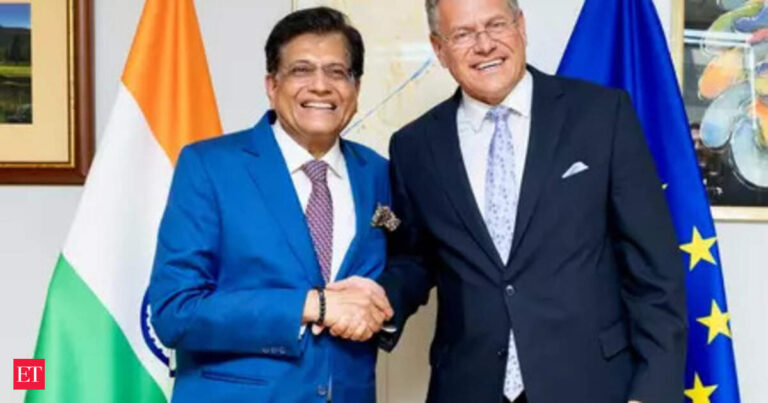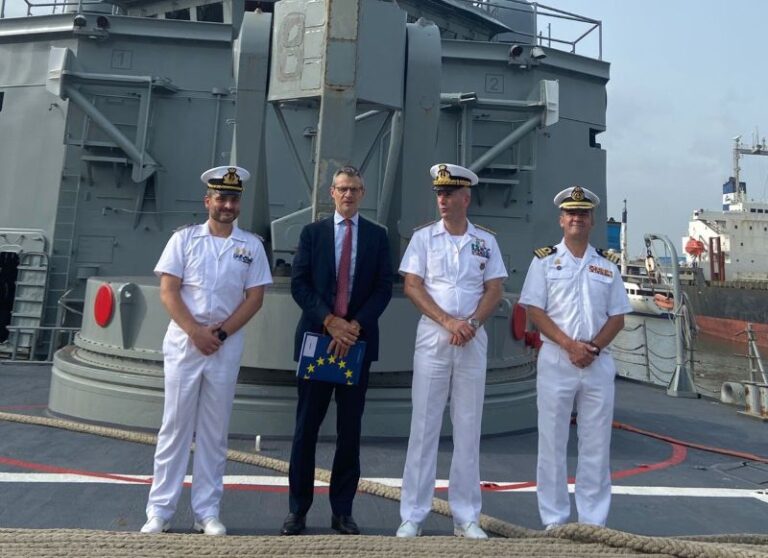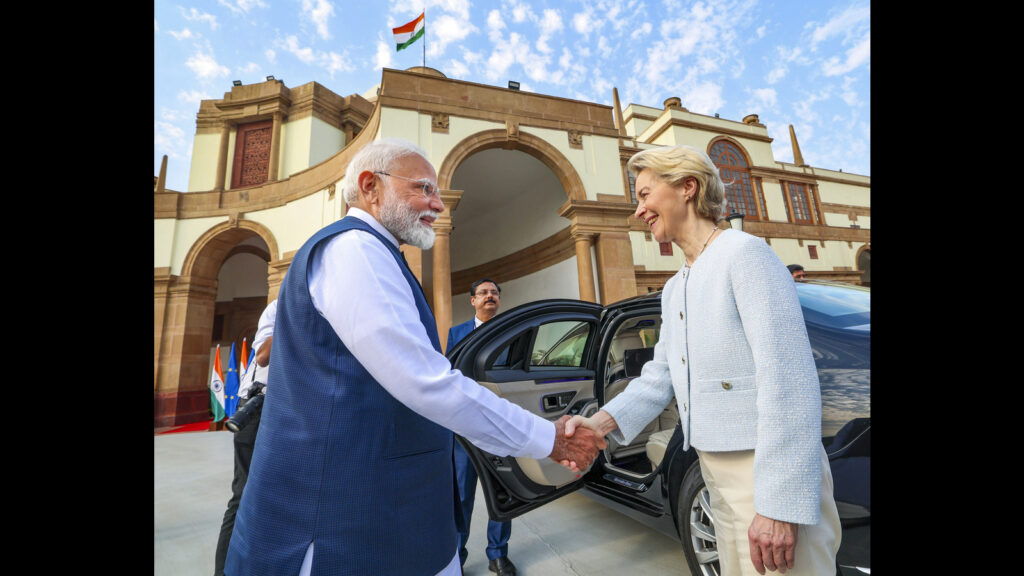
The recently finished visit of the president of the European Commission, Ursula von der Leyen – accompanied by 22 members of the 27 college of European Union commissioners (EU) – in India was the first visit of this type in a non -European country since Von Der Leyen received the mandate last year. The visit could potentially mark the start of a promising new era in India-Europe relations.

The visit took place in the backdrop of dramatic global developments and a rapid balance of power. The arrival of Donald Trump in the White House, and the almost complete reversal of American foreign policy, put the 80-year-old Euro-Atlantic alliance under immense and unprecedented stress. The new American administration has clearly said, and Europe has also clearly understood that Washington will not pay for the defense of Europe in the future. Europe is alone. The Indian side also knows that its ability to count on the United States for its defense and security is, at best, doubtful and, at worst, moved.
Trump also enabled an increasing feeling of anxiety in the European spirit – and to a certain extent in the Indian minds also – to be sidelined by crucial conversations of great power, which could have a more significant impact on Europe than in India. Europe feels excluded from conversations of great power, in particular between the United States and Russia; And India would feel uncomfortable if indeed China was invited to be one of these conversations. In this context, it should be noted that the joint India-EU declaration makes an explicit reference to Ukraine, emphasizing “support for a just and lasting peace in Ukraine according to respect for international law, the principles of the Charter of the United Nations and territorial integrity and sovereignty”.
If the Dilemma of India during the Joe Biden administration was to carefully determine the extent of its partnership with the United States in the Indo-Pacific vis-à-vis China and other areas of security, its main concern, in the future, would be to determine whether the United States has an interest in these areas. In other words, India has every reason to worry about the potential decline in its global profile in a Trumpian world. For Europe, on the other hand, while its dilemma under the Biden administration was to structure the nature of the involvement of the transatlantic partnership in world affairs, its concern today concerns the very existence of such a partnership. While Europe is more worried about the failure of multilateralism, India is more concerned with the narrowing space available for multipolarity in a Trumpian world.
Not so long ago, the EU and India were in some respects located on the opposite sides of a normative and geopolitical order in which Europeans felt the need for moral shame, India and India found themselves to speak. The two parties were talking. But somewhat unexpectedly, the two parties now find themselves away, thus providing a reason to engage more openly, without the constraints of difficult history and skepticism. One of the reasons why India and Europe are getting closer in the coming days is that the main part of the world of which they did not agree no longer.
Consequently, if the two parties can keep their differences away and engage in a realistic and determined dialogue, based on common interests, we could see the emergence of a major voice in the international system. India and Europe may still not agree on their respective visions for the world order, but their differences seem pale in a world where the very presence of all order is doubtful.
A new partnership born from the crisis: INDIA and the EU – both main substantial actors on the world scene – are then looking for a new strategic relevance and new strategic partners. The opening speech of the EU chief that she pronounced in a function organized by The world of India The magazine was, in this sense, appropriately entitled “the consequent partnership: the reimagination and the realignment of the EU-India links for the world of today”. Von der Leyen told the strategic community of New Delhi and the diplomatic corps in his speech: “This world is in charge of danger. But I believe that this modern version of Great Power Contest is an opportunity for Europe and India to reinvent their partnership. ”
The two parties finally established a deadline – at the end of 2025 – to conclude the ambitious free trade agreement. Although a final deadline is important, it will not be easy to respect it given the several obstacles which must be overcome before the two parties can sign it. The top of New Delhi’s mind is the problem of the carbon border adjustment mechanism (CBAM) which has been a major stumbling block. The reports indicate that the European party envisages certain modifications to concede to Indian requests.
From the promotion of standards to the security partnership: On a more practical note, the main content of the India-EU relationship is ready for a sea change in the coming years, from the promotion of standards to a security defense partnership. In his opening speech during the event, Von Der Leyen announced “that we explore a future security and defense partnership with India in the mold of partnerships that we have with Japan and South Korea”. This announcement is important given its potential to transform the regional security order into Indo-Pacific, even if the United States takes a rear seat.
Happymon Jacob teaches India’s foreign policy to JNU and is the editor -in -chief of India World Magazine. The views expressed are personal
For advanced readers in search of more than news
Subscribe now to unlock this article and access the exclusive content to stay in advance
E-Paper | Expert analysis and opinion | Geopolitics | Sports | Games
